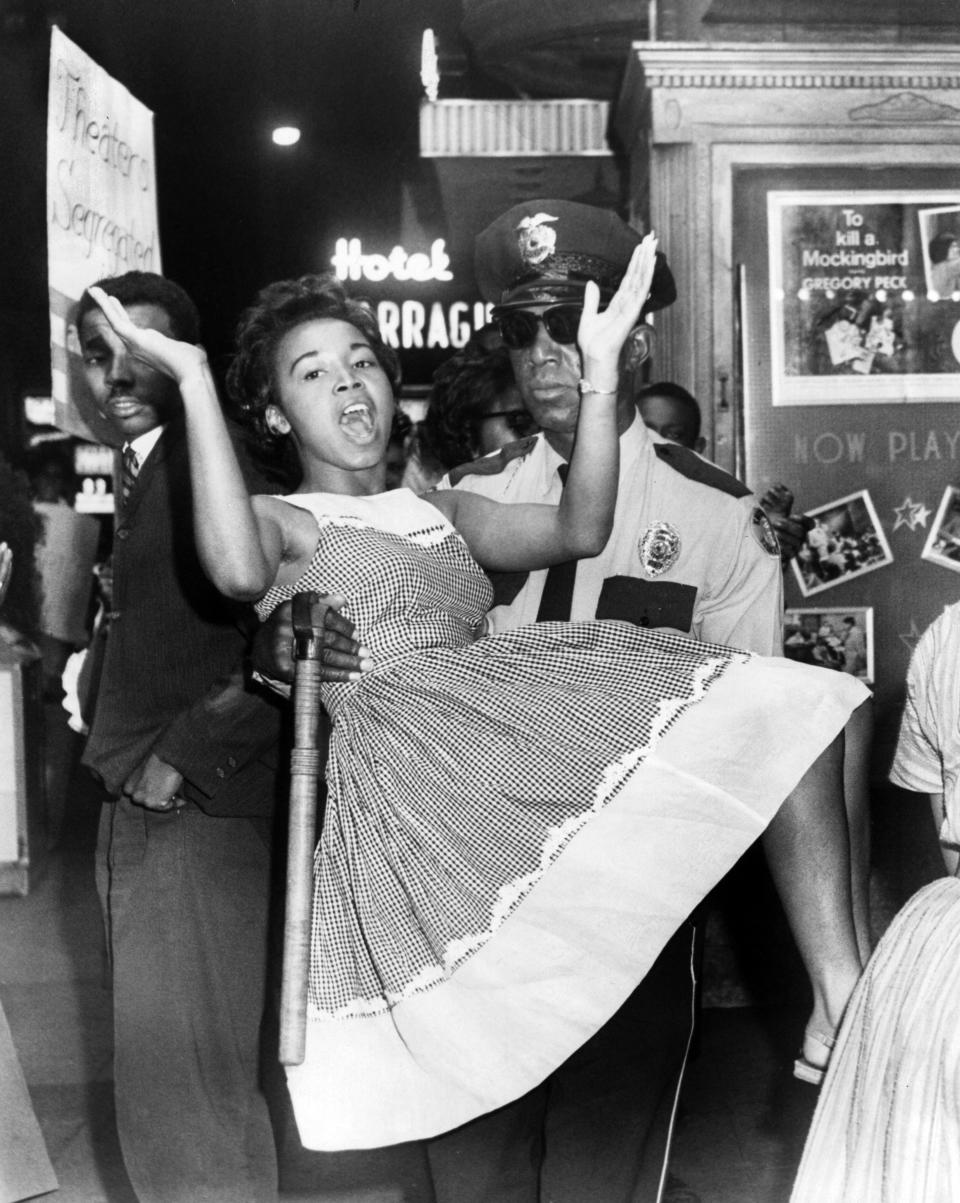Just 60 years ago, Knoxville movie theaters were still segregated | Opinion
Sixty years ago downtown Knoxville was abuzz with people picketing the three Gay Street movie theaters. There are photographs of some people lying on the sidewalk in protest and some being arrested for blocking box office ticket sales. It was a continuation of desegregation efforts that had begun March 6, 1960, when a group of Knoxville College students marched through the stores that had lunch counters.
Yet three years later, with the failure of negotiations between theater operators and Black civic leaders, the demonstrations were still underway. Although Knoxville did not experience the brutality that occurred in other cities where dogs bit protestors, fire hoses drenched them and officers of the law clubbed them, the situation was just as serious. There was always the possibility of being attacked by an opposing mob.

Another difference in Knoxville was that government officials wanted a peaceful solution. Mayor John Duncan made sure that officers did not overreact when arresting people for disorderly conduct. He and former mayors Cas Walker and George Dempster advocated for a peaceful settlement. They did not want racial upheaval in their city.
In a bold effort to resolve the issue, Duncan early on took the president of Knoxville College and two of its students to New York to talk with the presidents of the dime stores. That trip on May 6, 1960, proved fruitless because the stores' presidents refused to meet with the Knoxville delegation on the grounds they would then have to meet with groups from other cities. Ironically, the trip was sponsored by the Knoxville Chamber of Commerce.
Hear more Tennessee voices: Get the weekly opinion newsletter for insightful and thought-provoking columns.
If the merchant organization sponsored the trip, were the merchants themselves willing to desegregate their facilities? Were they afraid of losing customers and wanted higher authorities to approve desegregation? In retirement, one of the downtown merchants apologized for his attitude during the movement. He said he was wrong in denying Black patrons access to his lunch counter.
The lunch counters desegregated July 18, 1960, but the movie houses were still segregated. While picketing had been underway for some time at the Tennessee, Riviera and Bijou theaters, the first arrest did not occur until Oct. 9, 1961. The next day the Knoxville News-Sentinel named the 51 people taken into custody and booked at the old city jail on Broadway.
It reported, "The Negro prisoners, some of them whom sang Spirituals while jailed, are scheduled for City Court hearings at 1:30 p.m. Oct 20. Mayor John Duncan, Safety Director Ray Oglesby, and Chief French Harris today discussed the picketing outbreak for more than an hour. Following the meeting, the mayor said they had no statement to make concerning the trouble."
There had been a steering committee headed by Black pastors to oversee activities at lunch counters, but there was no committee for conducting demonstrations at the theaters.While virtually every neighborhood had a theater, it was decided to concentrate on the Gay Street movie houses. Sitting in at lunch counters was done mainly during the lunch hour, but since moviegoers largely came out at night, demonstrations at the theaters occurred in the evenings. After three years of resistance, they desegregated in the summer of 1964.
Robert J. Booker is a freelance writer and former executive director of the Beck Cultural Exchange Center. He may be reached at 865-546-1576.
This article originally appeared on Knoxville News Sentinel: Opinion: Just 60 years ago, Knoxville theaters were still segregated

